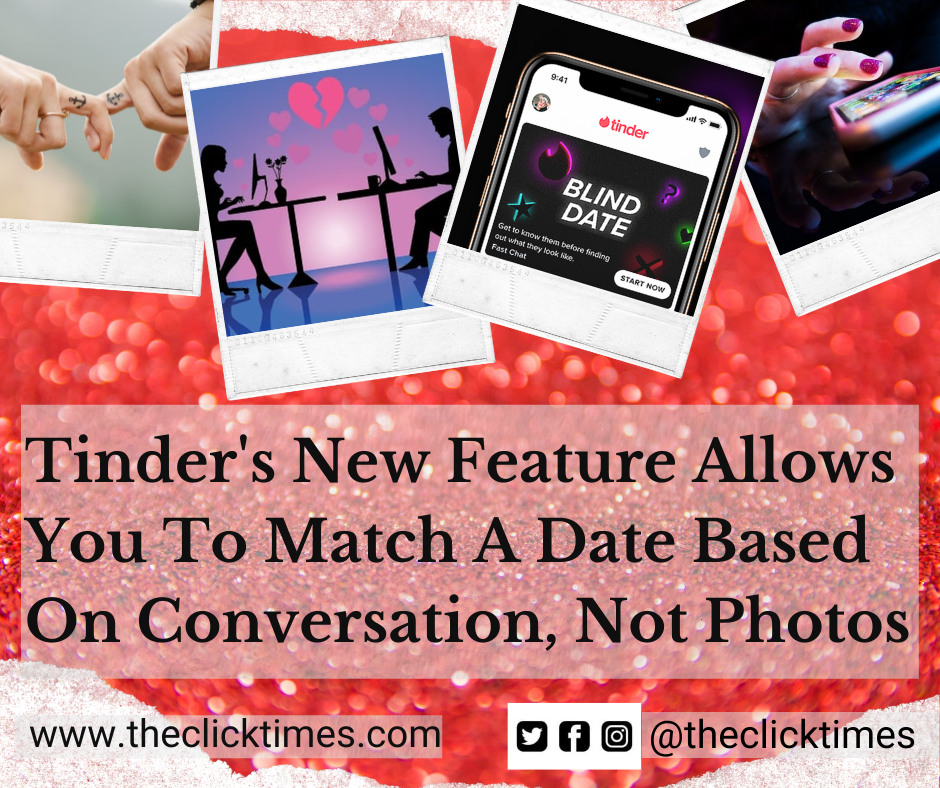To introduce authenticity to online dating, Tinder launched a new feature called “Blind Date,” which brings fliers together to chat before they can see each other’s profiles.
“Inspired by the OG way of meeting someone new, usually through a nosy aunt or well-meaning friend, Blind Date offers today’s dates a way to put their personality first and find a partner they genuinely like ‘ Tinder said. .
People on Tinder who are testing this feature answer a series of icebreaker questions like “Is it okay to wear a shirt _ times without washing it” and “I put ketchup on it_“. Based on their answers, users are matched and see their potential match’s answers.They are then put into a timed chat, after which they can choose to pair up with the other person or not. If both people swipe right, their profiles including their photos will appear.
Tinder says early tests of the “Blind Date” feature, which launched Thursday, generated 40% more matches than those using Tinder’s “Quick Chat” feature, which includes pictures from people’s profiles, suggesting this that humans might be willing to mate with others for personality they might have initially overlooked. Whether looking at the person’s profile changed the person’s mind and whether the feature will lead to more dating is still unknown.
This is the latest move by dating apps to reach out to more GenZ who value authenticity and novelty in dating apps.
Founded in 2012, Tinder has become the ultimate millennial dating app and remains the market leader with 7.8 million users in 2022, according to Business of Apps, a website dedicated to app business analysis.
However, apps like Bumble have tried Tinder, which according to Business of Apps will have 5 million users in the United States in 2022. .Bumble is a women-run app that allows only women to send the first message and contains more information about people’s personality and interests.
The “Blind Date” feature could also help counter discrimination faced by different racial and ethnic groups on dating apps.
A 2018 study by Cornell researchers showed that while dating platforms give people unprecedented access to more socially diverse encounters, they can also perpetuate “sexual racism” by discriminating against certain groups.

